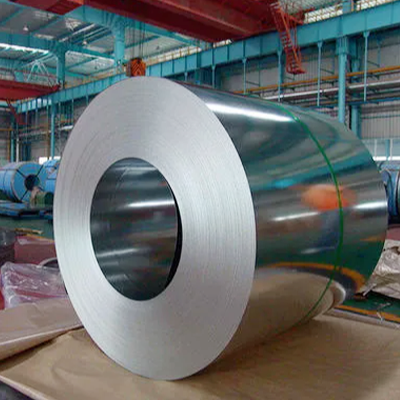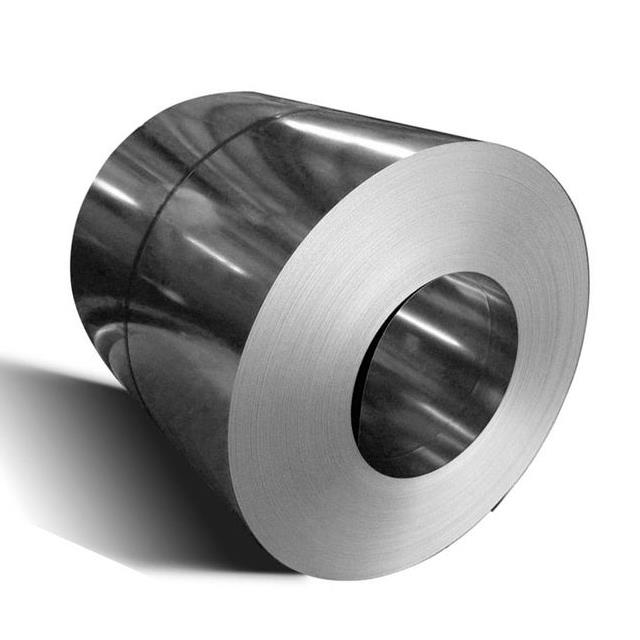Galvanized steel can be classified into two main types: hot-dip galvanized steel and electro-galvanized steel.
Overall, galvanized steel is a popular and versatile material that offers excellent corrosion resistance and durability. Its use is widespread in a variety of industries and applications, and it will likely continue to be an important material for many years to come.
galvanized steel coil,galvanized steel sheet,galvanized steel plate,galvanized coil,galvanized sheet Wuxi Shengshu Metal Co., Ltd. , https://www.wuxissmetal.com
Hot-dip galvanization is the most common method of galvanizing steel. In this process, the steel is first cleaned and then immersed in a bath of molten zinc at a temperature of around 450°C. The zinc reacts with the surface of the steel, forming a series of zinc-iron alloy layers that provide excellent corrosion protection.
Electro-galvanization, on the other hand, is a process that involves using an electric current to deposit a thin layer of zinc onto the steel surface. This method is typically used for thinner gauge steel and provides a smoother finish than hot-dip galvanization. However, it may not be as durable as hot-dip galvanization and is typically used for less demanding applications.
In addition to its corrosion resistance, galvanized steel is also fire-resistant and has good thermal conductivity. It is also relatively easy to fabricate and can be formed into a wide range of shapes and sizes, making it a versatile material for various applications.
However, galvanized steel may not be suitablefor all applications. It has a shorter lifespan than some other corrosion-resistant materials, such as stainless steel, and may require regular maintenance to ensure its continued protection against corrosion. Additionally, galvanization can affect the appearance of the steel, giving it a characteristic dull gray or silver color that may not be desirable for some aesthetic applications.
Another consideration with galvanized steel is the potential environmental impact of the galvanizing process. The production of galvanized steel typically involves the use of large amounts of energy and resources, and the disposal of waste products from the galvanizing process can have environmental implications. However, efforts are being made to improve the sustainability of the galvanizing process, such as through the use of more energy-efficient production methods and the recycling of waste materials.


Mobile pump systems are typically self-contained units that can be easily transported to where they're needed. While primarily used for water transfer, these systems have a wide range of commercial, industrial, and municipal applications. Some models are designed to handle fluids other than water, making them versatile for various tasks. They are commonly used in firefighting, water drainage, and flood protection. Additionally, they play an important role in processing applications involving different types of liquids, such as in chemical plants, distilleries, microbreweries, and restaurants for oil and fat collection. Compared to stationary pumps, mobile pump systems offer greater flexibility and ensure reliable fluid transportation.
Why Use Packaged Mobile Pump Systems?
Although the specific applications may vary, mobile pumping systems are often used by facilities with fluid storage spread across large areas. By making fluid transfer mobile, these systems become more adaptable. Their portability also allows them to be used in multiple locations and for different purposes. When provided as a packaged system, they come ready to use and only require connection to a facility’s piping system.
Advantages of packaged mobile pump systems include:
- **Accessibility**: Packaged mobile systems are easier to manage since they don’t require complex connections or installation.
- **Adaptability**: Depending on specifications, these systems can handle a variety of liquids, including water with solids or chemical solutions.
- **Lightweight**: Truly mobile units don’t require heavy equipment to move, making compact and lightweight packages more versatile.
- **Cost-effectiveness**: A complete system is provided, and mobile versions tend to be more affordable due to lower installation costs.
- **Dependability**: Designed for mobility, these systems feature robust construction to perform under challenging conditions.
- **Disaster management**: Movable pumps are ideal for emergency situations like fires or floods due to their adaptability.
- **Efficiency**: Despite their size, portable pumps often have powerful motors capable of handling high capacities, which is essential for managing floodwaters or similar scenarios.
- **Equipped**: Packaged systems are pre-configured, tested, and ready for immediate use.
- **Installation**: Connecting them to hosing or piping is a simple process.
- **Maintenance**: Mobile systems allow easier access to components for maintenance and repairs.
- **Mobility**: Designed with lightweight materials, they are easy to move from one location to another.
- **Versatility**: Since they can be brought anywhere, they can be used flexibly for various tasks.
Packaging mobile pump systems also reduces production costs, as mass-producing identical systems is more efficient than creating custom ones. However, some manufacturers can provide custom mobile packages tailored to specific needs. These systems are particularly effective for applications like accessing water sources, dredging operations, firefighting, flood protection, and water drainage.
Many municipal water supplies rely on open freshwater sources like lakes and rivers. Packaged mobile pump systems provide quick access to these resources. They are also useful for dredging operations in harbors or shipping channels, requiring sturdiness to handle liquids with solids. Accessing surface water is crucial for firefighting as well.
Firefighters in wooded areas can use mobile pump systems to access water for extinguishing forest fires. Similarly, in urban fire emergencies where surface water isn't readily available, these systems are vital. Beyond firefighting, they are also essential in flood-prone areas, helping to drain water away from structures like dams, dikes, or seawalls. During floods, these pumps help remove water quickly and effectively.
How Hayes Pump’s Mobile Pump Packages Enhance Processes
Hayes Pump offers a wide range of mobile pump systems that can be rapidly deployed when fixed pumps are not sufficient. This flexibility is especially valuable for industries like mining, construction, and municipalities dealing with emergencies. Our durable mobile systems are preassembled, tested for quick installation, and built to withstand tough environments for continuous operation. They are designed for easy maintenance, featuring user-friendly interfaces and remote monitoring for real-time performance tracking. Hayes also provides options for advanced features like variable frequency drives and intuitive control systems while ensuring compliance with environmental standards. Customization is available to meet specific customer requirements for pump capacities and configurations.
Hayes Pump: Mobile Pump Systems to Augment Processing
Hayes Pump provides mobile pump system packages suitable for various commercial, industrial, and municipal applications. In addition, we can tailor these systems to meet the unique needs of our customers. As a distributor of pumps and pump components, along with services such as maintenance and repair, Hayes Pump offers a broad selection of mobile pump systems. Our partners include Xylem Inc., Warren-Rupp, Viking Pump, The Gorman-Rupp Company, Pentair Fairbanks-Nijhuis, LobePro Rotary Pumps, and Grundfos Pumps.
Dewatering Mobile Pump Systems
These heavy-duty mobile systems are designed to handle large volumes of water efficiently. Hayes carries pumps made by Gorman Rupp, a leader in the fabrication, leasing, sales, and servicing of mobile pump systems. Dewatering pumps are commonly used in agriculture, construction, and mining.
High-Pressure Mobile Pump Systems
Designed to maintain proper flow and pressure for applications requiring high-pressure pumping, Gorman Rupp's line includes pumps suitable for both freshwater and saltwater. These systems can operate as standby pumps for firefighting or industrial cleaning, and can be packaged with hose reels or hydrants. They are also used as jetting pumps in high-pressure sewage systems.
Bypass Mobile Pump Systems
These systems divert flow during upgrades, repairs, or maintenance, offering flexibility through mobility. Bypass pumps operate as temporary solutions to ensure uninterrupted flow during infrastructure work. Hayes carries Gorman Rupp’s products, which are used in wastewater treatment within the environmental, industrial, and municipal sectors.
Emergency Mobile Pump Systems
Hayes offers sump and utility pumps for emergency situations. Gorman Rupp’s mobile or submersible options are available depending on the application. These emergency pumping systems can be rapidly deployed to minimize damage caused by flooding, equipment failure, or other disasters.
General-Purpose Mobile Pump Systems
Hayes provides compact, general-purpose pumps from Grundfos, suitable for a variety of applications. These systems can handle different fluids and flow rates, making them highly versatile. They are often used for draining flooded areas, lifting water from pits, ponds, swimming pools, and underpasses. They are also used in breweries and other processing industries.
Mobile Pump Systems for Slurries
These systems must be exceptionally robust to handle abrasive and viscous slurries. Hayes carries pumps from Warren-Rupp, capable of managing solutions with suspended solids and abrasive liquids. Warren-Rupp also produces air-powered polypropylene pumps that safely handle shear-sensitive and highly viscous fluids.
Additionally, we offer pump products from Gorman Rupp and LobePro Rotary Pumps. Gorman Rupp makes portable pumps that can handle solids, while LobePro’s self-priming pumps are used to clean clarifiers and digesters in water treatment plants. These mobile systems are often used in dredging, mining, and various industrial processes.
Fuel Transfer Mobile Pump Systems
Viking Pumps provides fuel and volatile liquid transfer systems for Hayes. These mobile pumps are used for lubricant transfer and to keep industrial equipment running smoothly. They are essential for handling flammable and hazardous fluids, often used to pump lubricants through dehydration systems, filters, and heat exchangers, removing contaminants and excess moisture while reducing operating temperatures.
Agricultural Mobile Pump Systems
Grundfos offers a compact, single-stage stainless steel drainage pump suitable for farming applications. These systems can be portable or permanently installed and operate partly or fully submerged. They are used for irrigation, watering livestock, and other water transfer tasks. Dairies, farms, ranches, and other agricultural enterprises frequently use them.
Mobile Pump Systems for Municipal Water Treatment
Hayes also carries submersible wastewater pumps from Grundfos, which can be installed permanently or kept mobile. Water treatment pump systems must operate reliably and meet strict safety standards. Gorman Rupp also provides mobile systems for drinking water in municipal and other entities. These portable systems are found in water treatment plants and are used to distribute potable water and treat wastewater.
Mobile Pump Systems for Transferring Chemicals
Hayes Pump offers a range of mobile pump systems designed for efficiency and reliability in chemical transport. We also provide customized solutions for specific applications and industries. These pumps are built with materials that resist corrosion and can handle aggressive liquids.
To learn more about the specific types of mobile pump systems we carry and our customizable packages, contact one of our friendly representatives today.
June 29, 2025